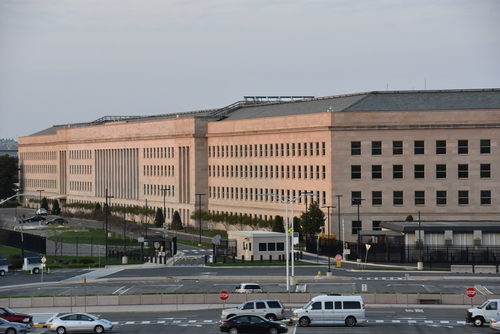
In a rare flex against the military for the United States, a bipartisan mix of senators and representatives have introduced the Streamline Pentagon Budgeting Act, which would repeal statutory requirements to provide unfunded priorities lists, increase oversight and reduce wasteful reporting burdens.
“The Department of Defense’s priorities should be reflected in its budget,” U.S. Sen. Elizabeth Warren (D-MA), one of the bill’s authors, said. “These wish lists have become the Pentagon’s primary tool to boost an already excessive top line, and these budget games need to stop. This new, bipartisan bill would help ensure that Congress does its part by eliminating this wasteful requirement. Secretary Austin should also act to stop the Pentagon’s bureaucratic money-grabbing.”
Joining Warren in this effort were fellow U.S. Sens. Mike Braun (R-IN), Mike Lee (R-UT), and Angus Stanley King Jr. (I-ME), along with U.S. Reps. Pramila Jayapal (D-WA) and Tom McClintock (R-CA).
“Our crushing national debt is a national security threat,” Braun said. “Defense is the most important thing we do, and if we’re going to get our servicemembers the best equipment, we need a stable budgeting process. Unfunded priority lists may have started with good intentions, but as Congress’s budget dysfunction has gotten worse, it has morphed into another budgeting gimmick with negative results, such as non-necessities being included in the budget and critical necessities ended up on a wish list. The nation and our military deserve a stable budgeting process, which this legislation will be a step toward.”
Unfunded priorities lists are more commonly referred to as military wish lists, submitted to Congress on top of annual Pentagon budget submissions. Unlike proper budget submissions, they lack details on the long-term costs of investments and, according to the bill authors, can distort the force and undermine the overall budget process. Former Defense Secretary Robert Gates notably cut these lists by nearly 90 percent as part of internal reforms, but the 2017 National Defense Authorization Act instituted a statutory requirement for the chiefs of staff to provide these lists annually, while subsequent defense bills expanded the requirement to other agencies.
According to the lawmakers, this, in turn, has been abused, allowing programs that should be in the base budget to slide into the unfunded priorities list. According to the Government Accountability Office (GAO), these budgetary maneuvers raise concerns about implementing congressional oversight and decision-making.
“Year after year, the military’s “unfunded requirements” lists force Congress to pour more money into an already bloated defense budget that benefits from no oversight or accountability,” Jayapal said. “These unfunded priorities are simply a collated wishlist, not vetted by top leadership and not ranked in terms of priority or need. Our current system is simply untenable, and we cannot continue sinking enormous sums of money into non-critical wish list items that are not even priorities of current DoD leadership—all while working people suffer.”
Accordingly, the legislation would repeal the requirements for top military officers, combatant commanders, and the Missile Defense Agency to provide unfunded priorities lists. Beyond the halls of Congress, these reforms are backed by the National Taxpayers Union, Center for Defense Information at POGO, Public Citizen, Taxpayers Protection Alliance, FreedomWorks, R Street, the Project of Government Oversight, and Taxpayers for Common Sense.




